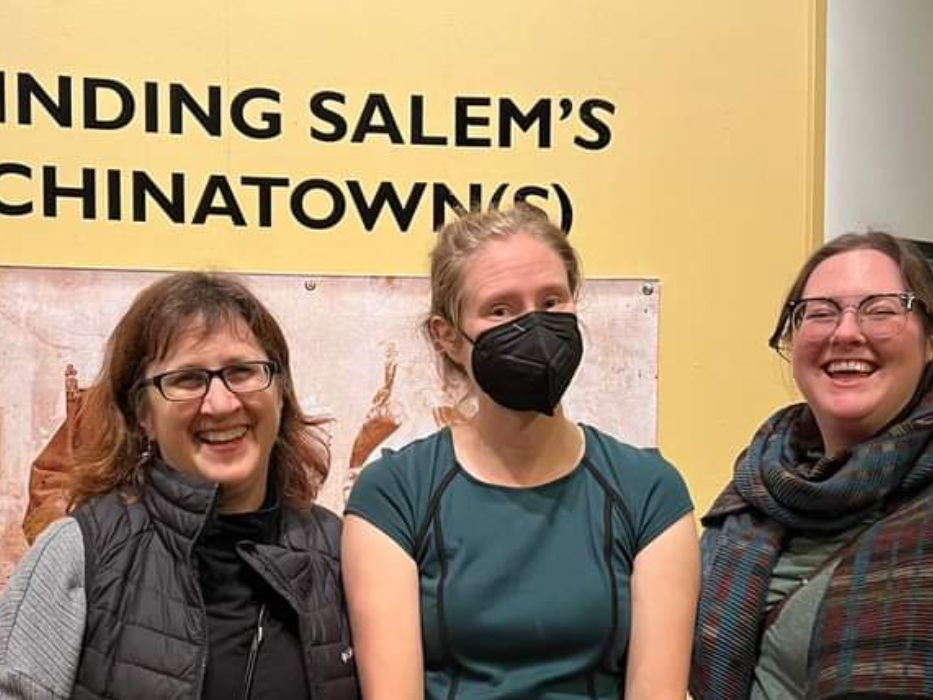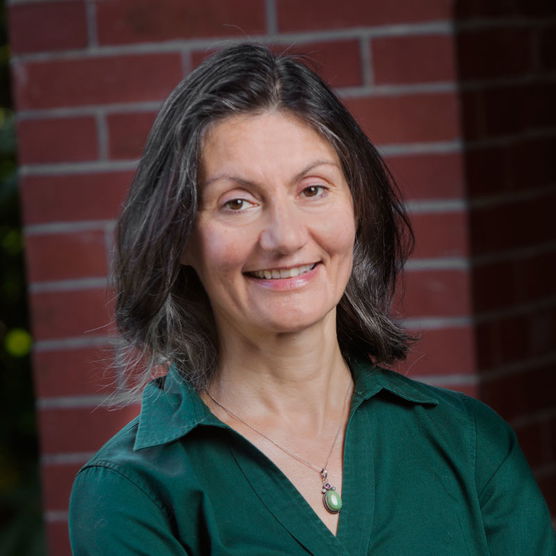
Internships
- City of Salem
- Hallie Ford Museum of Art
- Oregon State Capitol
- Oregon State Historic Preservation Office
- Willamette Heritage Center / Marion County Historical Society
Interpret the history of the ancient world. Examine the life of Julius Caesar and learn the language and literature of ancient Greece and Rome.
Undergraduate Bachelor of Arts
Major, Minor
124
4 Years
Salem

In her role as architectural historian, Kirsten Straus '13 balances the needs of the state transportation system with protecting and documenting historic sites and resources. Her background in Classical Studies at Willamette helped prepare her merge the old with the new.
The award-winning paper Kirsten co-wrote led to the discovery of previously unknown first-person accounts of people's experiences in Salem's early Chinese community. She credits the research skills she gained in Willamette's Classic Studies program with preparing her to take on multi-year projects like this.


Curious where this major can take you? These are the real internships, graduate opportunities, and careers our Classical Studies students have gone on to.



When you major in classical studies, you join an academic tradition spanning millennia. Those with a classical studies degree have pursued careers in law, medicine, business, or teaching among other paths.
Rositsa Atanasova ’07 is championing refugee rights from Willamette to Bulgaria.
Rositsa Atanasova’s journey from studying Classical Studies at Willamette University to advocating for migrant and refugee rights in Bulgaria demonstrates the transformative power of education and the enduring impact of community connections.


Prestigious senior thesis leads to career at Fred Hutchinson Cancer Center
Rachel Dell ‘19, a Phi Beta Kappa honoree who double majored in Biology and Classics (with departmental honors in Classics), now excels as a Research Technician at the Fred Hutchinson Cancer Center.
Professors in the Department of Classical Studies are experts in the wide-ranging aspects of Greek and Roman cultures. Work closely with faculty on research projects and receive personalized guidance about your career prospects.
Dr. Ortwin Knorr brings a wealth of experience from teaching at prestigious institutions. He offers a diverse range of courses in Greek and Latin literature, classical receptions, and comparative literature.

Dr. Robert Chenault is an expert in the later Roman Empire, focusing on the city of Rome and its senators. With prestigious awards such as the Arthur Ross Pre-Doctoral Rome Prize and Mellon Fellowship, his scholarship enriches students' understanding of late antiquity.

Dr. Mary R. Bachvarova is a distinguished scholar in classical studies with a focus on the ancient Eastern Mediterranean. As an educator, she offers a diverse range of fascinating courses exploring ancient Mediterranean society, myth, and language.

In the classical studies program, classes examine the texts, laws, and social values of ancient peoples. Classical studies majors must learn at least one of the classical languages, either ancient Greek or Latin. Research, read 2000-year-old texts in the original language, and take advantage of campus resources to enrich your education.
Explore the lives of women in ancient Rome and see how Latin literature reflects their experiences. Reconstruct women's voices by exploring both literary and non-literary sources. In addition, students will examine artistic representations of women in the form of portrait sculptures and funerary monuments.
Uncover the connections between Greek myths and Near Eastern origins by studying ancient deities, rituals, and cultural exchanges. Engage with texts and artifacts to explore the dynamic performances and spaces where myths came to life.
Our Classical Studies major requires 48 semester hours to complete the major, with a total of 124 credit hours required to complete the degree. This includes 28 semester hours in two classical languages, 16 semester hours in courses related to the ancient Mediterranean, and 4 semester hours dedicated to the Senior Seminar.
Students pursuing a Classical Studies minor will need to complete 20 semester hours. These hours must contain 4-16 semester hours in Greek or Latin and 4-12 semester hours from other relevant courses.

Our classical studies program is open to first-year students, transfer students and international students. Learn more about Willamette’s undergraduate admissions process to get started.

Willamette University is dedicated to supporting our students with generous merit scholarships and financial aid. There is no separate application required for these scholarships. All admitted undergraduate applicants are automatically considered for merit-based scholarships, starting at $28,000 per year. These scholarships are awarded in recognition of academic excellence, based on cumulative GPA and SAT or ACT scores, if provided.

Willamette University